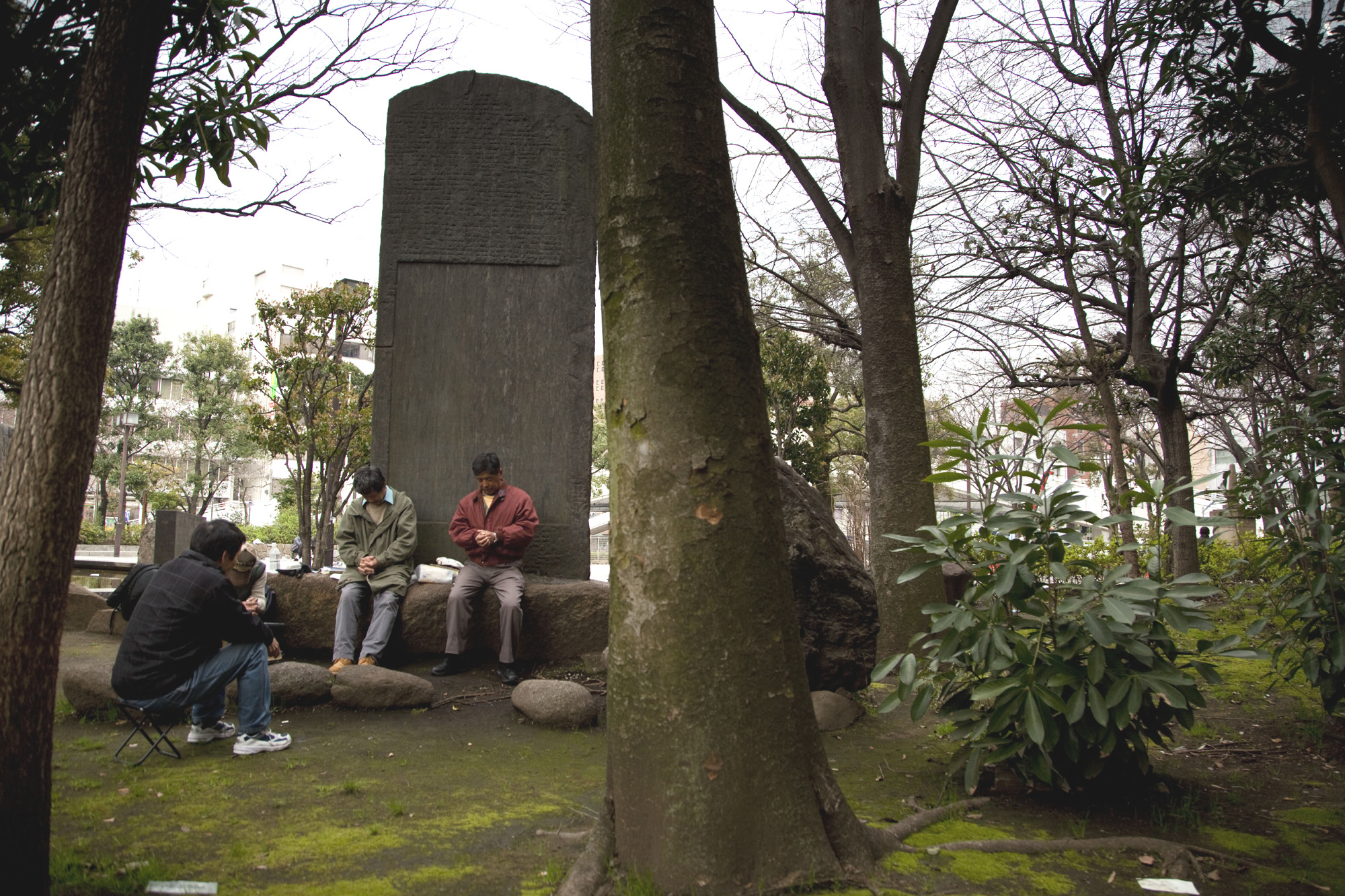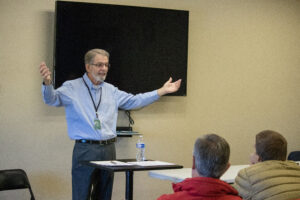
EDITOR’S NOTE: This year’s Week of Prayer for International Missions in the Southern Baptist Convention is Dec. 4-11 with the theme of “His heart, His hands, His voice — I am Southern Baptist missions” from Acts 1:8. Each year’s Lottie Moon Christmas Offering supplements Cooperative Program giving to support Southern Baptists’ 5,000 international missionaries’ initiatives in sharing the Gospel. This year’s offering goal is $175 million. To find resources about the offering, go to imb.org/offering.
TOKYO (BP) — Sunlight filters through the windows of apartment 201 in a small green building on the outskirts of Tokyo, Japan. Outside, blue skies and the first hint of cherry blossoms signal the beginning of spring. Inside, the small two-room apartment is immaculately clean with minimal furnishings. The only ornament is a small stuffed bear wearing a Giants outfit. Like most Japanese, Hironobu and Mitsuko Honda are baseball fans.
Hironobu is a tall, thin man in his early 60s. Mitsuko is a small woman, her graying hair pulled back in a bun and secured by a wide headband. As Mitsuko bustles about the kitchen preparing tea, Hironobu provides mats for each guest as they take their seats on the floor in traditional Japanese fashion.
Just a few months before the Hondas’ lives were radically different. They were two of Tokyo’s 4,000-plus homeless people.
“They were living on the street with only 20 yen ($0.20) in their pocket,” says International Mission Board missionary Wendy Hoshizaki, a New Jersey native.
After Hironobu lost his job at a cleaning company in July 2009, the couple lived on the streets of Tokyo for weeks. Every night they faced the challenge of finding a safe place to sleep. Every day they worried about where to get their next meal. Hironobu was so distraught he talked of jumping in front of a train.
Suicide and depression cost Japan’s economy nearly $32 billion in treatment fees and lost income in 2009, the government reported. It is the first time the government has released such figures. The numbers, though, don’t begin to grasp the hopelessness Hironobu felt with no job and no prospects for work.
To Hironobu, along with more than 26,000 other Japanese who committed suicide in 2009, death seemed the best way out of an unbearable situation.
To Mitsuko, though, the very idea of suicide upset her so much that even the sounds of the nearby trains terrified her.
“I kept thinking about how my body would look if it was run over by a train,” Mitsuko recalls. “It made me shudder and I couldn’t bear the thoughts.”
Stubbornly, the Hondas pressed on, mingling with the crowds of Japanese businessmen by day and avoiding the throngs of young people that swarm Tokyo’s streets at night. Because of the agony Mitsuko felt at the sounds of the trains, the couple moved to Yoyogi Park and joined the extensive homeless community there. Mitsuko liked it because it was quiet; there were no train stations nearby. Life remained difficult, though, and the nights were still very dark.
“I had a small flashlight that gave me just enough light to see,” Hironobu says. “I kept it with me all the time.”
The Hondas still had little protection from the weather and very little to eat. As they settled into life in Yoyogi, however, another homeless person told them about a food distribution by a group of Christians.
“We hadn’t eaten in three days, and we were getting hungry,” Mitsuko says. “We heard there were only 70 meals, so we rushed over to make sure we got a number.”
At the food distribution, the Hondas realized there was something different about this ministry. There, they heard about Jesus for the first time.
Two days later, a typhoon hit Japan. The wind and rain from the typhoon made conditions in the park even more difficult. Many of the makeshift shelters were damaged. The Hondas still hadn’t eaten properly, and Mitsuko collapsed from exhaustion and lack of food. A worker from another agency helped Hironobu get his wife into a local hospital. A few days later, Hironobu called IMB missionary Mark Hoshizaki, Wendy’s husband. Hoshizaki and IMB missionary Josh Park visited the hospital the next day.
When Mitsuko was released from the hospital, the couple moved to government housing in Tokyo. About a month later, Hironobu found work. They contacted the Hoshizakis again and began meeting with them. Within a few weeks, the Hondas prayed to receive Christ.
“If they hadn’t met us, we probably would have been dead,” Mitsuko says. “They changed the direction of our life.”
Today, the days of homelessness are fading into memory. The Hondas live in their own modest apartment on the outskirts of the city. A small quiet park is within walking distance. As they lunch beneath the cherry blossoms, they talk of their new life in Christ.
“Now the Word of God is my flashlight,” Hironobu says. “The Light is always pointing us to the place we should go.”
The Hondas also want to help others in similar situations but believe it involves more than simply providing food. They recognize that most Japanese have never heard of Jesus and don’t believe in eternal life. God has given them a unique opportunity to share the reality of eternal life with the homeless, Hironobu says.
“We’ve been there,” he says. “We’ve experienced it. We understand the mindset and attitudes.”
Mitsuko sees their experience as fitting into God’s plan not just for them but also for the Japanese people as a whole.
“He has a purpose in everything,” Mitsuko says. “He is getting us ready for the next step. We just keep asking, ‘What’s next? What’s next?'”
–30–
Tess Rivers is an International Mission Board writer living in Southeast Asia.















